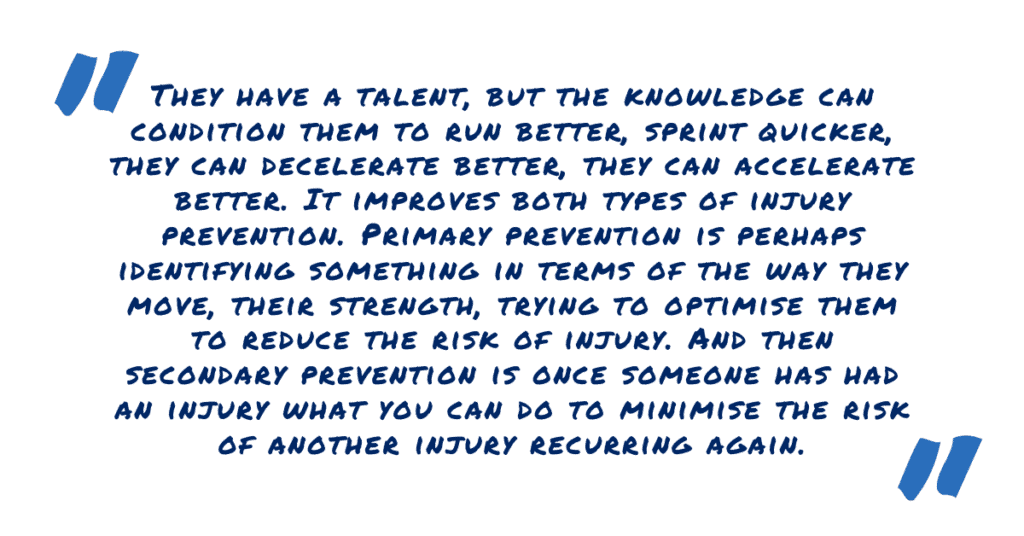Are we seeing early signs that performance intelligence will prolong careers and increase longevity and performance of the greatest stars on the planet? I think the answer is a resounding ‘yes.’
The Independent recently ran a fascinating piece on this, looking specifically at Mohamed Salah’s career and contract and commenting on the surprising ages of some of global football’s brightest lights: Cristiano Ronaldo (36), Lionel Messi (34), and Zlatan Ibrahimovic (40).
By conventional wisdom, these athletes should be “past their prime.” Yet here they are, playing at the world’s highest level and achieving things people just wouldn’t have expected ten years ago – and they’re still phenomenal to watch.
Their Body Is Their Business
What’s common to these older athletes? Each has made a definite decision that their body is their business. They’ve invested in their body and their health, and done so in a very objective, highly informed – intelligent – way. (See Phil Foden’s hiring a personal chef or Tom Brady’s TB12 diet.)
Beyond diet, data lets these incredibly shrewd athletes know how to adapt their style of play as they age. According to Dr. Matt Stride, “A player could potentially be better at 40 than at 20 if trained the right way.” Here’s Dr. Stride on the ability of so-called ‘gray haired’ players to adapt and avoid injury:

(Not coincidentally, we see this in American football, too: Tom Brady at 44, now leads the NFL with 1,767 passing yards in the 2021 season, making him the league’s most valuable player so far this season, according to some metrics.)
Even Slight Exposure to Performance Intelligence Pays Dividends
I think we’re starting to see the first generation of athletes who have had, from the beginning of their careers up to the present day, some exposure to certain slivers of performance intelligence. And even that slight early exposure has been so powerful, we’re now seeing the knock-on impact.
And if this is the effect of even limited, early career exposure to data and intelligence, what kind of an impact will we see when athletes can go their whole careers constantly exposed to these capabilities? In the same piece from The Independent, Stuart MacMillan, sprint coach and chief executive of ALTIS, points out, “The science that underpins these decisions now is light years ahead of where it was even a decade ago.”
He’s right. And projecting that out, as Performance Intelligence becomes all-pervasive, it’s not farfetched to expect data and analytics will keep an army of talented stars on the field, playing at their peak into their late 30’s early 40s.
Start Earlier, Stay Longer
For a different perspective on athlete longevity, let’s consider the other end of the age curve – youth football. Here, we’ve simply got to talk about Zayn Ali Salman, the four-year-old footballer scouted by Arsenal while still at nursery.
Watch the BBC segment, and you come away in awe of this little boy’s natural talent. As Stephen Deans, Talent Scout, Arsenal FC, said of him, “This kid is doing something that he shouldn’t be doing. The way he’s striking the ball – it just looks too sharp.”
My observation, however, is this: think of how much more data little Zayn will have on his own career than any other pro athlete competing today. How much more will he know about his ability to perform, about how to keep his body safe from injury?
The world knows Mohammed Salah’s tremendous talent – but no S&C department got to touch him, no data analyst got to capture his data, until he was 22 years old. Zayn by contrast will grow up after the age of Performance Intelligence has already dawned. If Arsenal start collecting his data now, Zayn and his coaches and trainers will be able to understand literally every aspect of his performance and health. They’ll be able to make incredible decisions all the way through his career.
Will we see an athlete like this playing in the Premier League from age 16 through to his mid-forties? Are we on the cusp of that type of impact? At Kitman Labs, we think the potential is there, and so pushing at both ends of the age curve is going to be really important. The earlier we start, the later we can finish.
I’ll be sharing thoughts on sport’s most impactful developments and news on an ongoing basis. I welcome your feedback on Twitter or at stephen@kitmanlabs.com.




